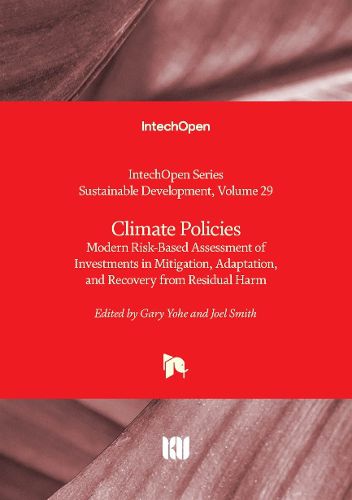Readings Newsletter
Become a Readings Member to make your shopping experience even easier.
Sign in or sign up for free!
You’re not far away from qualifying for FREE standard shipping within Australia
You’ve qualified for FREE standard shipping within Australia
The cart is loading…






This collection of chapters is organized in sections that reflect humanity's three broad categories of climate policy options: abate (mitigate to reduce the likelihood of climate impacts), adapt (ameliorate some of the consequences of those impacts), and suffer (the residual costs that cannot be avoided). All apply a risk-based perspective to discussions and assessments of what we do and do not know and, thus, what we can or perhaps cannot really do. Each chapter includes, in their concluding remarks at least, some attempt to identify critical gaps in our current understanding of the specific circumstances of the coupling of the climate and human systems on earth and, by continuation, elaborate on constraints on our confidence in relative efficacies that we project in our policy deliberations as we confront particular illustrative risks. Specifically, efficacy judgements take account of at least one of the IPCC metrics for judging response efficacy: net climate change damages, co-benefits and costs of policies, measures of sustainability (of systems and policies), equity calibrated in various metrics of human welfare security, and the degree to which people, communities, sub-national governance bodies, nations, and international institutions are averse to risk.
$9.00 standard shipping within Australia
FREE standard shipping within Australia for orders over $100.00
Express & International shipping calculated at checkout
This collection of chapters is organized in sections that reflect humanity's three broad categories of climate policy options: abate (mitigate to reduce the likelihood of climate impacts), adapt (ameliorate some of the consequences of those impacts), and suffer (the residual costs that cannot be avoided). All apply a risk-based perspective to discussions and assessments of what we do and do not know and, thus, what we can or perhaps cannot really do. Each chapter includes, in their concluding remarks at least, some attempt to identify critical gaps in our current understanding of the specific circumstances of the coupling of the climate and human systems on earth and, by continuation, elaborate on constraints on our confidence in relative efficacies that we project in our policy deliberations as we confront particular illustrative risks. Specifically, efficacy judgements take account of at least one of the IPCC metrics for judging response efficacy: net climate change damages, co-benefits and costs of policies, measures of sustainability (of systems and policies), equity calibrated in various metrics of human welfare security, and the degree to which people, communities, sub-national governance bodies, nations, and international institutions are averse to risk.